
Marmite ( MAR-myte) is a British savoury food spread based on yeast extract, invented by the German scientist Justus von Liebig. It is made from by-products of beer brewing (lees) and is produced by the British company Unilever. Marmite is a vegan source of B vitamins, including supplemental vitamin B12. A traditional method of use is to spread it very thinly on buttered toast.

HP Sauce is a British brown sauce, the main ingredients of which are tomatoes and tamarind extract. It was named after London's Houses of Parliament. After making its first appearance on British dinner tables in the late 19th century, HP Sauce went on to become an icon of British culture. It was the best-selling brand of brown sauce in the UK in 2005, with 73.8% of the retail market. The sauce was originally produced in the United Kingdom, but is now made by Heinz in the Netherlands.

Organic certification is a certification process for producers of organic food and other organic agricultural products, in the European Union more commonly known as ecological or biological products. In general, any business directly involved in food production can be certified, including seed suppliers, farmers, food processors, retailers and restaurants. A lesser known counterpart is certification for organic textiles that includes certification of textile products made from organically grown fibres.
Coles Supermarkets Australia Pty Ltd, trading as Coles, is an Australian supermarket, retail and consumer services chain, headquartered in Melbourne as part of the Coles Group. Founded in 1914 in Collingwood by George Coles, Coles operates 846 supermarkets throughout Australia, including several now re-branded Bi-Lo Supermarkets. Coles has over 120,000 employees and accounts for around 27 per cent of the Australian market. Coles' large head office site in Melbourne's inner south-east has 4,000 employees of the workforce located inside.
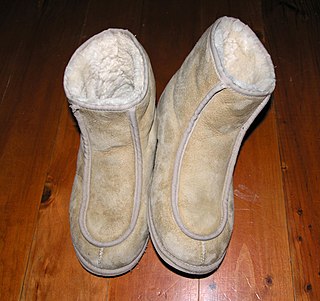
Ugg boots are a unisex style of sheepskin boot originating in Australia. The boots are typically made of twin-faced sheepskin with fleece on the inside, a tanned outer surface and a synthetic sole. The term "ugg boots" originated in Australia, initially for utilitarian footwear worn for warmth, and which were often worn by surfers during the 1960s. In the 1970s, the boots were introduced to the surf culture of the United Kingdom and the United States. Sheepskin boots became a fashion trend in the U.S. in the late 1990s and a worldwide trend in the mid-2000s. In Australia, they are worn predominantly as slippers and often associated with daggy fashion sense and bogan culture.

Cheerios is a brand of cereal manufactured by General Mills in the United States and Canada, consisting of pulverized oats in the shape of a solid torus. In some countries, including the United Kingdom, Cheerios is marketed by Cereal Partners under the Nestlé brand; in Australia and New Zealand, Cheerios is sold as an Uncle Tobys product. It was first manufactured in 1941 as CheeriOats.
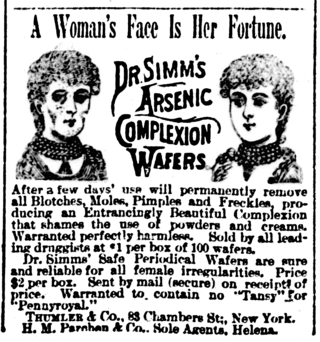
False advertising is defined as the act of publishing, transmitting, or otherwise publicly circulating an advertisement containing a false claim, or statement, made intentionally to promote the sale of property, goods, or services. A false advertisement can be classified as deceptive if the advertiser deliberately misleads the consumer, rather than making an unintentional mistake. A number of governments use regulations to limit false advertising.

Milo is a chocolate-flavoured malted powder product produced by Nestlé, typically mixed with milk, hot water, or both, to produce a beverage. It was originally developed in Australia by Thomas Mayne (1901–1995) in 1934.

Yoplait is the world's largest franchise brand of yogurt. It is jointly owned by American food conglomerate General Mills and French dairy cooperative Sodiaal.

Reese's Take 5 is a candy bar that was released by The Hershey Company in December 2004. The original name of the candy bar was TAKE5 but common usage among consumers added a space. In June 2019, when the candy bar became part of the Reese's family, the name was officially changed to Reese's Take 5.

The Smith's Snackfood Company is a British-Australian snack food brand owned by the American multinational food, snack, and beverage corporation PepsiCo. It is best known for its brand of potato crisps. The company was founded by Frank Smith and Jim Viney in the United Kingdom in 1920 as Smiths Potato Crisps Ltd, originally packaging a twist of salt with its crisps in greaseproof paper bags which were sold around London. The dominant brand in the UK until the 1960s when Golden Wonder took over with Cheese & Onion, Smith's countered by creating Salt & Vinegar flavour which was launched nationally in 1967.
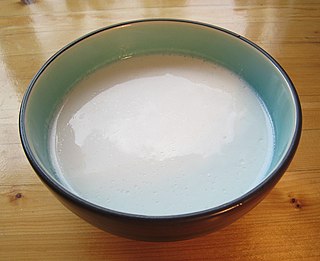
Plant milk is a plant beverage with a color resembling that of milk. Plant milks are non-dairy beverages made from a water-based plant extract for flavoring and aroma. Plant milks are consumed as alternatives to dairy milk, and may provide a creamy mouthfeel.
The law in the United Kingdom on food information and labelling is multifaceted and is spread over many reforms and parliamentary acts. UK law is based on the relevant European Union rules, chiefly Regulation (EU) 1169/2011, which is implemented in the UK in the Food Information Regulations 2014, the Food Information (Wales) Regulations 2014, the Food Information (Scotland) Regulations 2014 and the Food Information Regulations 2014. Regulations apply to the labelling of goods pre-packaged for sale and to the provision of information regarding non-prepacked (loose) foods.
Buy NZ Made is a campaign promoting and encouraging people to buy New Zealand made products. It is run by BusinessNZ, a business advocacy body made up of New Zealand employers and manufacturers.

Arnott's Biscuits Limited is an Australian producer of biscuits and snack food. Founded in 1865, they are the largest producer of biscuits in Australia and a subsidiary of KKR.
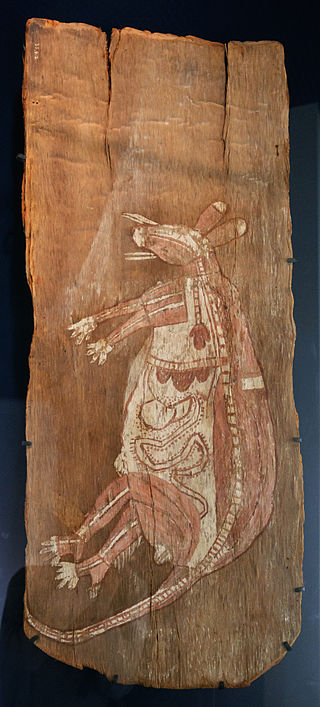
Kangaroos, Wallabies and other Macropodidae have become emblems and symbols of Australia, as well as appearing in popular culture both internationally and within Australia itself.
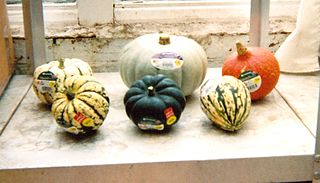
Food marketing brings together the food producer and the consumer through a chain of marketing activities.
Domestic sourcing is the activity of contracting for goods or services that are delivered or manufactured within the buyer's home country borders. Domestic sourcing is becoming central to the discussion of "Buy American" or the protectionist debate that is being discussed at the highest levels of all major countries. This debate is becoming particularly acute with the unemployment rate in the US rising above 8% nationally and now impacting more white collar jobs or service industry jobs.

Campbell Soup Company, doing business as Campbell's, is an American company, most closely associated with its flagship canned soup products; however through mergers and acquisitions, it has grown to become one of the largest processed food companies in the United States. with a wide variety of products under its flagship Campbell's brand as well as other brands including Pepperidge Farm, Snyder's of Hanover, V8, and Swanson. With its namesake brand Campbell's produces soups and other canned foods, baked goods, beverages, and snacks. It is headquartered in Camden, New Jersey.
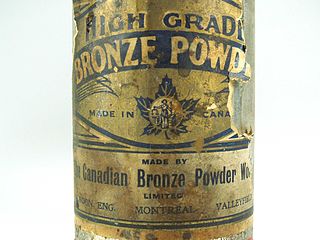
Made in Canada and Product of Canada are certification marks designating a claim that Canada is the country of origin of a good. A product label for that good may use these marks, or a qualified version, to present that claim to consumers. The certification marks are voluntary within Canada but may be required on exported goods, to comply with the laws of the country of export.

















